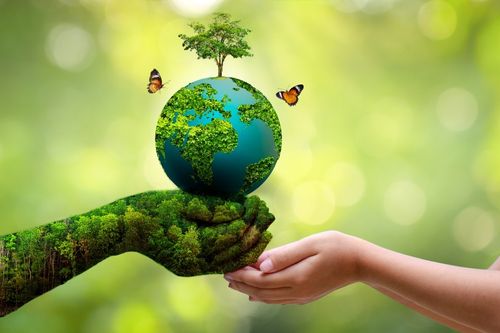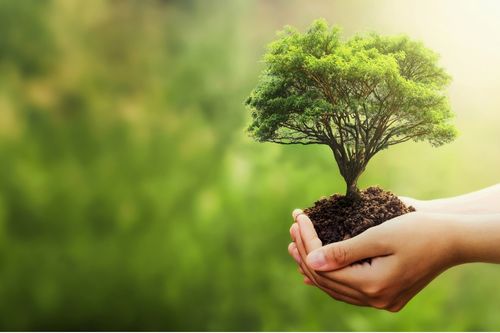Table of Contents
Individuals, populations, ecosystems, and biospheres are all part of ecology. Ecology is closely related to the disciplines of biogeography, evolutionary biology, genetics, ethology, and natural history. Ecology study is a biological branch that is not synonymous with environmentalism.
What is ecology?
Ecology is a subfield of biology. It studies ecosystems and how their various components interact to form a cohesive, functioning habitat. Ecologists study the relationships between plant and animal species and how outside influences, such as human activity, affect natural processes.
Ecology research includes how nature is connected, including biotic factors like plants and animals and abiotic factors like weather and geography. Ecology has practical applications in conservation, habitat management, and restoration.
Other concepts studied in ecology
- Processes of life, antifragility, interactions, and adaptations
- Material and energy flow through living communities
- Ecosystem development through the succession
- Cooperation, competition, and predation within and between species
- The abundance, biomass, and distribution of organisms with their surroundings.
- Biodiversity patterns and their impact on ecosystem processes
Types of ecology

Ecology includes a variety of sub-disciplines that cover all of the topics related to the environment and sciences. Ecology is divided into several fields, including-
Molecular ecology
It studies how an individual’s DNA and biological processes affect its interactions with their environment.
Organismal ecology
It is the study of a single species. Its physiology, behavior, and so on, and how it interacts with its surroundings and other species.
Population ecology
It is the study of how populations grow through birth and death, as well as how the genome of a population affects survival and how it responds to the environment.
Community ecology
It studies how multiple species coexist and interact and how those populations interact with their surroundings.
Ecosystem ecology
It is the study of an entire ecosystem and how its biotic and abiotic components interact.
Landscape ecology
It studies how biotic and abiotic factors interact with an environment over time and space.
Global Ecology
It is the study of how environments interact on a global scale.
The importance of ecology in our lives

Ecology has many specialties, such as marine, vegetation, and statistical ecology, providing us with information to help us better understand the world around us. This knowledge can also improve the environment, manage natural resources, and protect human health. The following are just a few examples of how ecological knowledge has positively influenced our lives.
Enhancing our environment
In the 1960s, ecological research identified phosphorous and nitrogen as two major causes of poor water quality in lakes and streams. Both were found in high concentrations of laundry detergents and fertilizers. Citizens took the necessary steps to help restore lakes and streams in their communities, many of which are now famous for fishing and swimming.
Concepts of ecology
Below given concepts are studied in ecology
Ecosystem
An ecosystem is any geographical area that contains all organisms and nonliving components of their physical environment. A natural wilderness area, a suburban lake or forest, or a heavily used area such as a city can all be considered ecosystems. The greater the natural abundance of an ecosystem, the more ecosystem benefits it provides. These include cleaning the water and air (wetlands and marshes), pollinating crops and other important plants (insects, birds, and bats), and absorbing and detoxifying pollutants (soils and plants).
Biodiversity
Biodiversity is short for biological diversity. It refers to variations in microorganisms, plants, fungi, and animals. Some of this variation occurs within species, such as differences in the shapes and colors of flowers from the same plant species. Biodiversity also refers to the number of species of living organisms on the planet.
Environment
An organism’s environment includes its physical and chemical surroundings and other organisms it comes into contact with. This term is most commonly used in a human context, referring to factors influencing our quality of life.
Natural resources
Natural resources include both living and nonliving beings in the human environment. There are two kinds of renewable resources (wildlife, fish, timber, and water) and nonrenewable (fossil fuels and minerals).
Population
It is a community of individuals from the same species (of bacteria, fungi, plants, or animals) who live in the same area.
Community
Interactions between populations of organisms of different species.
Key takeaways
- The study of ecology researches organisms and their interactions with their surroundings. The job of an ecologist is to study the interactions between living things and their environments to learn multiple aspects of life.
- Ecology is a subfield of biology. It studies ecosystems and how their various components interact to form a cohesive, functioning habitat. Ecologists also study the relationships between plant and animal species and how outside influences affect natural processes.
- Ecology has many specialties, such as marine, vegetation, and statistical ecology, that provides information to help us understand the world. This knowledge can also save the environment, manage natural resources, and protect human health.
Did you find this blog informative? If so, please share your thoughts in the comments section below. Click here to contact us for more information on the study of ecology. We would be happy to assist you with your queries.
Liked thios blog? Read next: Types and applications of ethnobotany
FAQs
Q1. Who is the father of modern ecology?
Ans- Eugene Odum is revered throughout science as the ‘Father of Modern Ecology,’ and the University of Georgia honors him as the ‘Father of Modern Ecology.’
Q2.Who named ecology?
Ans- Ernst Haeckel, a German zoologist, coined the term “ecology” in 1866 to describe the ‘economies’ of living forms.
Q3. What jobs do ecologists do?
Ans- Ecologists can work for environmental consulting firms, assisting them in developing sustainable practices. They may also work for government natural resource agencies, conducting environmental impact studies or managing ecological resources.







